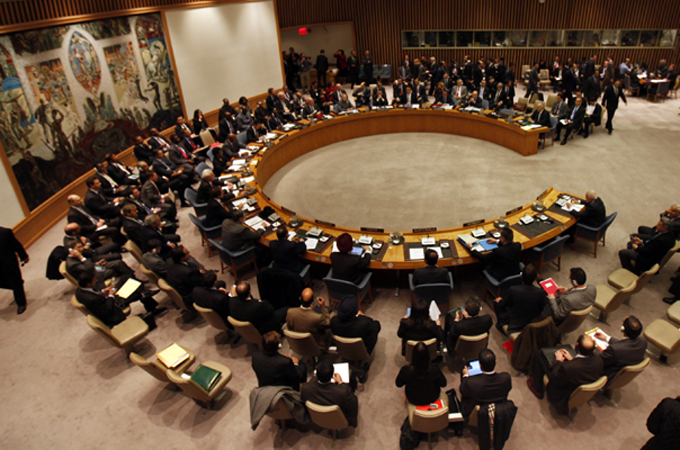By Adom M. Cooper
Impunity Watch Reporter, Middle East
GAZA CITY, Gaza–The leaders of rival Palestinian factions Fatah and Hamas signed a deal on Monday 06 February 2012 in Qatar to form a unity government. The government would be independent of West Bank and Gaza, currently led by Palestinian President Mahmoud Abbas.

Israeli Prime Minister Benjamin Netanyahu issued a statement shortly after the agreement was signed, stating that Israel would not come to the table so long as Hamas was on the Palestinian side.
“Hamas is a terrorist organization which strives to destroy Israel and relies on support from Iran. I have said many times in the past that the Palestinian Authority must choose between an alliance with Hamas and peace with Israel. Hamas and peace don’t go together.”
As the never-ending peace talks between Israel and Palestine continue to prove fruitless, the agreement signed is hoping to pave the way for Palestinian presidential and parliamentary election as a possibility later this year. Also, there is focus and hope on substantively rebuilding Hamas-ruled Gaza Strip, following a 2008-2009 Israeli offensive against Hamas.
This deal comes just one weekend after dozens of Palestinians staged hostile protests as the convoy of visiting UN chief Ban Ki-Moon entered Gaza from Israel. Many of the protesters were relatives of Palestinian prisoners in Israeli jails and came to express their anger at Mr. Ban’s refusal to meet with them to discuss the prisoners’ situation. According to the BBC, the protesters were expressing their disgust on behalf of approximately 4,000 Palestinian prisoners.
Some protesters threw shoes at the convoy while others held signs, one which displayed the text, “enough bias for Israel.” Mr. Ban’s visit to the region was supposed to ignite stalled peace negotiations between the two sides. An entire month of “exploratory talks” ended last week without any major or expected breakthroughs.
When Mr. Ban’s armoured convoy entered Gaza, approximately 50 protesters gathered on the Gaza side of the Erez crossing as the convoy came through. According to the AP news agency, the protesters formed a human chain in an attempt to hold up the UN chief’s progress but Hamas security forces removed them from the area. After passing through the protest, Mr. Ban traveled to Khan Younis, where he reportedly was scheduled to visit a school and a Japanese-funded housing project.
As both Israeli and Palestinian authorities continue to make statements, the focus on the region really needs to be placed on the people on the ground. The Israeli populations appear to be functioning properly, while the Palestinian population appear dysfunctional and desolate. According to a Human Rights Watch report released over the weekend, Israeli policies on Palestinian residency have arbitrarily denied thousands of Palestinians the ability to live in, and travel to and from, the West Bank and Gaza. The 90-page reported dubbed “Forget about Him, He’s Not Here” goes into great detail about the arbitrary exclusion by the Israeli military of hundreds of thousands of Palestinians since 1967 and further documents the impact that said exclusion continues to have on individuals and families.
The Israeli military has a list that deems certain Palestinians as lawful and legitimate residents of the West Bank and Gaza has had a plethora of adverse effects on the Palestinian population. According to “Forget about Him, He’s Not Here,” it has separated families, caused individual to lose jobs as well as educational opportunities, barred people from entering the Palestinian territories, and trapped others inside them.
Sarah Leah Whitson, Middle East director at Human Rights Watch, shared these sentiments concerning the report and what it details.
“Israel has never put forth any concrete security rationale for blanket policies that have made life a nightmare for Palestinians whom it considers unlawful residents in their homes. The current policies leave families divided and people trapped on the wrong side of the border in Gaza and the West Bank. Israel should revise these policies and process requests for families to reunite, so that Palestinians can live with their families where they want.”
Israel requires Palestinians to be included in the population registry in order to be considered lawful residents and possess Israeli-approved identification cards and passports. In the West Bank, Palestinians need the ID cards for almost everything, including traveling internally, attending schools, finding employment, admittance to hospitals, and to visit relatives. Israeli security forces controlling checkpoints requires these cards before allowing passage and those controlling the West Bank borders also required Palestinians who are entering or leaving the territory to present an ID card or passport.
Until the conditions and issues surrounding Palestinian populations is substantively pushed to the front of any peace talks, it is very difficult to see how any change will occur. Many words can be written on agreements and signed but until those words mean no more requirements on Palestinians to carry ID and be arbitrarily separated from their relatives, the situation will continue to worsen.
For more information, please see:
NYT – Palestinian Factions Reach Unity Deal – 06 February 2012
Reuters – Palestinian Rivals Agree To Form Unity Government – 06 February 2012
Human Rights Watch – Israel: End Restrictions On Palestinian Residency – 05 February 2012
Al-Jazeera – Two Palestinians Wounded in Israeli Airstrike – 03 February 2012
CNN – Protesters Pelt U.N. Chief’s Vehicle With Shoes In Gaza – 02 February 2012
BBC – Palestinian Protesters Target UN Chief Ban Ki-Moon – 02 February 2012


